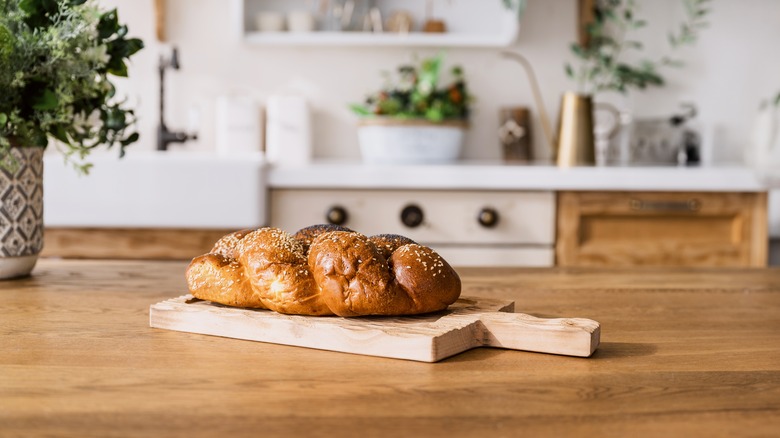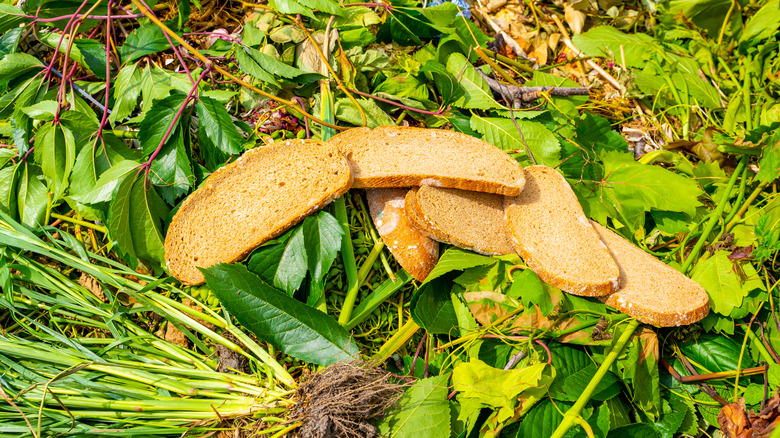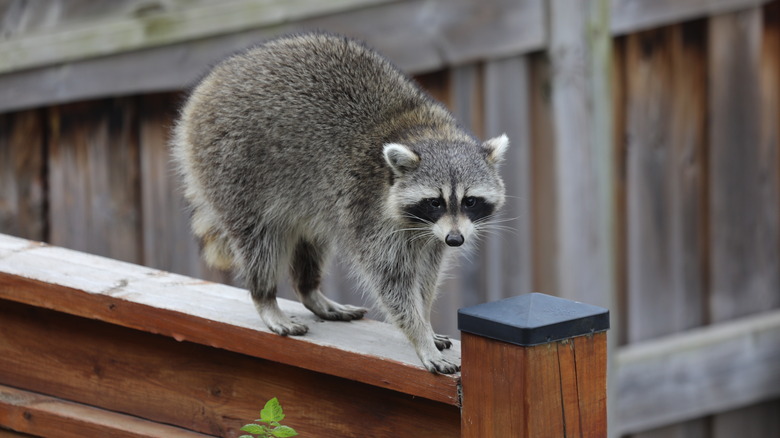Toss Leftover Bread Into Your Compost Pile And Watch What Happens
There are plenty of different ways you can doctor your compost pile to make the earthy material as nutrient-rich as possible for your garden, including adding some unexpected items. Some say that adding Coca-Cola to your compost heap will accelerate its decomposition since the high sugar content will attract microorganisms, while others swear that adding soap to your compost pile will help control mildew, pests, and odors. But can you also add your stale or moldy bread to your heap? We asked a gardening expert to see if there would be any advantages or disadvantages to the starchy addition.
Ashley Esakin, the founder of Gardening in Canada, says no harm can be done by adding your leftover bread or bagels into your compost. "Absolutely, it's easy to compost," she exclusively tells House Digest. This is great news for the loaf you forgot was in your pantry and has begun to grow mold. Or the leftover bagel you waited a day too long to toast and is now hard as granite. Rather than throwing it in the trash, you can make use of it and add it to your fertilizer.
How bread can be beneficial for your compost
When choosing which food scraps to add to your compost, you not only want to add items that will decompose into nutrient-rich matter, but also items that will attract microbes like bacteria and fungus. It's these microorganisms that break down the matter and turn your scraps into nutritious plant food. And as it turns out, bread can help attract different microorganisms to your pile. "[A] benefit is that it contains yeast, which is a microbe meal we don't often find in soil. So this can increase diversity," Esakin exclusively tells House Digest. It's beneficial to have diversity since different microorganisms can break down different elements. For example, fungi are better at breaking down matter that is acidic or low in nitrogen, which most bacteria cannot. Attracting different kinds of microbes can help better decompose your pile.
However, it's not enough to just throw old bread into your compost and call it a day. Some doctoring needs to be involved. "Mix it in with lots of browns, sawdust, leaves, shredded cardboard," Esakin explains. "Brown" materials are filled with carbon, which helps to balance the nitrogen-heavy element of bread. This ensures the compost stays well-balanced.
Downsides of adding bread to your compost
While bread can help make your compost richer, pests may become more attracted to your heap. "The only word of warning is critters (rodents, raccoons, birds) will all be more likely to hang out," Esakin exclusively shared with House Digest. That's because bread is a tasty snack for these animals. It's easy to grab, it's easy to chew since it's soft, and it's a lot more attractive than the carrot peels and crushed eggshells in the pile. One way to deter them from sniffing around the bread is to either cover it deep in the compost or only add it if you have a closed compost bin they can't get into.
If you're wondering what the best way is to assess whether or not a scrap is beneficial for your compost, Esakin recommends narrowing down what you want to avoid in your pile. "For me personally, I dislike critters ... so I stay away from a lot of processed foods, meats, and eggs," she says. "My go-to leftovers are fruits and veggies, and any scraps from cutting those up." Similarly, if you don't want a pile that smells, avoid adding anything fatty or oily, meat, and dairy items.


